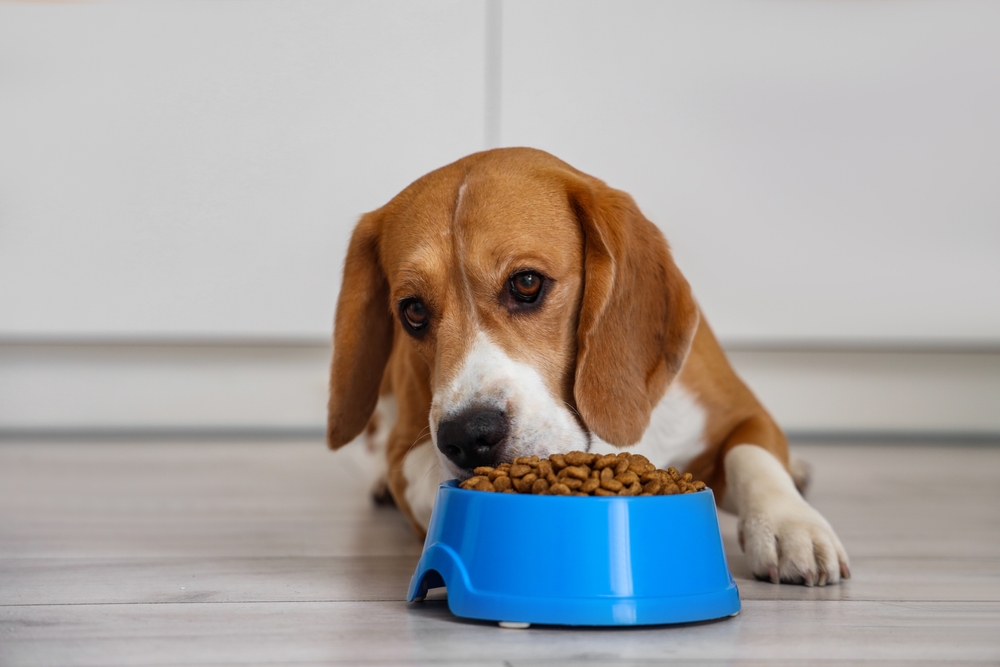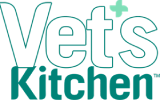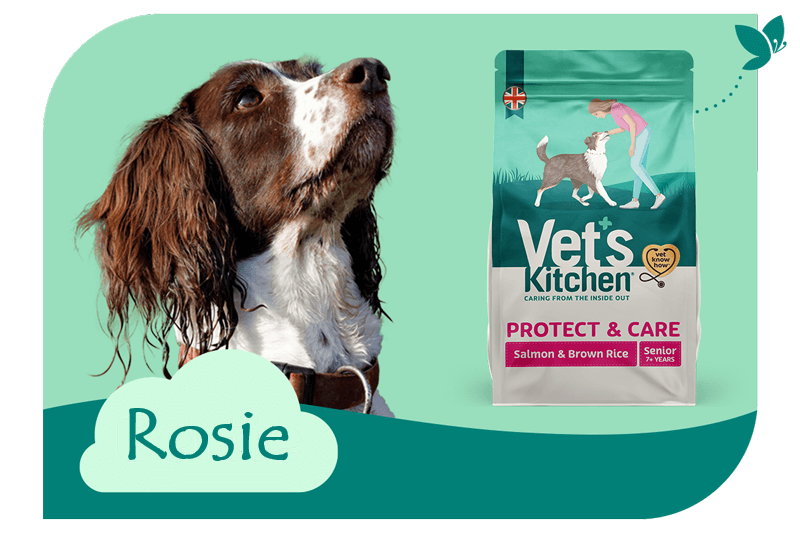Everything You Need To Know About Feeding Your Puppy
May 26th 2016
Puppies – Healthy Development
A puppy grows at a rapid rate and to maintain healthy development they require more energy (calories from protein and fat) and nutrients from their food than adult dogs, however too much nutrition can cause as many health problems as a deficiency. Rapid growth caused by too many calories and calcium in the diet is a major cause of orthopaedic disease (joint problems) later in life.
How Much Food?
Over the years there have been several different recommendations for feeding puppies. However, allowing the puppy to eat as much as he or she likes (free feeding) has been shown to increase the risk of obesity and joint disease.
.
A far safer method is portion controlled feeding, where the puppy’s daily amount of food is measured and split into several small meals per day. Studies show that puppies fed a controlled amount of food did grow at a slower rate but had fewer joint problems and grew to the same size when adult as the puppies who were free fed.
Protein
Proteins are needed by every cell in the body. Apart from being used as an energy source they have many other functions, including use as enzymes, hormones and being used in the structure of tissues, muscles, organs, skin and fur.
.
A deficiency of protein will cause reduced growth and it was initially thought that too much protein could also be a problem. Originally, rapid growth (and joint disease) was blamed on high protein diets, but this has been disproven (Nap 2001) and puppy foods of 23-31% protein support optimal growth in puppies.
Fat
Fat provides the puppy with energy, essential fatty acids and helps fat-soluble vitamins to be properly absorbed. Essential fatty acids are ones which the puppy cannot make in their own body and must obtain from their food. They include linoleic acid (a type of omega 6 fatty acid) and DHA (a type of omega 3 fatty acid) which is essential for brain, nervous system and visual development in puppies.
.
However, overfeeding or high levels of dietary fat can cause the puppy to become overweight, putting unnecessary strain on his/her developing joints. The extra calories the fat provides can also cause the puppy to grow too quickly and it can affect the absorption of other essential nutrients too.
Calcium and Phosphorous
These minerals have many functions including being major constituents of bones, teeth and muscles. A deficiency of calcium and phosphorus can cause decreased growth and problems such as rickets, but excessive levels of calcium have also been linked to joint problems such as hip dysplasia (although genetics also play a large part).
.
Calcium and phosphorus work together in the body and the ratio of the two minerals is very important for preventing health problems, there should never be more phosphorus than calcium in the diet. Puppies need the correct balance of minerals to grow at a safe rate and a calcium supplement should never be given alongside a complete puppy food (unless this has been recommended by your vet).
.
Puppies grow at a rapid rate and to maintain healthy development they require more energy (calories from protein and fat) and nutrients from their food than adult dogs.
The Best Start in Life
All Vet’s Kitchen foods are made with the knowledge, care and expertise found in their own veterinary practice, Vet’s Klinic. Their veterinary team know how important a healthy and balanced diet is for dogs, especially for growing puppies.
.
Vet’s Kitchen Grow & Develop Puppy Food is a complete dry dog food which provides balanced nutrition in a delicious tasting meal to help puppies grow & develop into healthy adult dogs. It has perfectly controlled mineral and fat levels to support healthy growth and development, added beta glucans, nucleotides and omega 3 to help build immunity and is easy to digest. With 47% Chicken, this naturally nutritious food is formulated to give your puppy the best start in life.
Advice and Support
If you would like any nutritional advice on feeding your puppy please don’t hesitate to contact us contact@vetskitchen.co.uk or 0845 303 6043.


 Shop Dog
Shop Dog
 Shop Cat
Shop Cat
 Vet Know-how
Vet Know-how Contact
Contact

